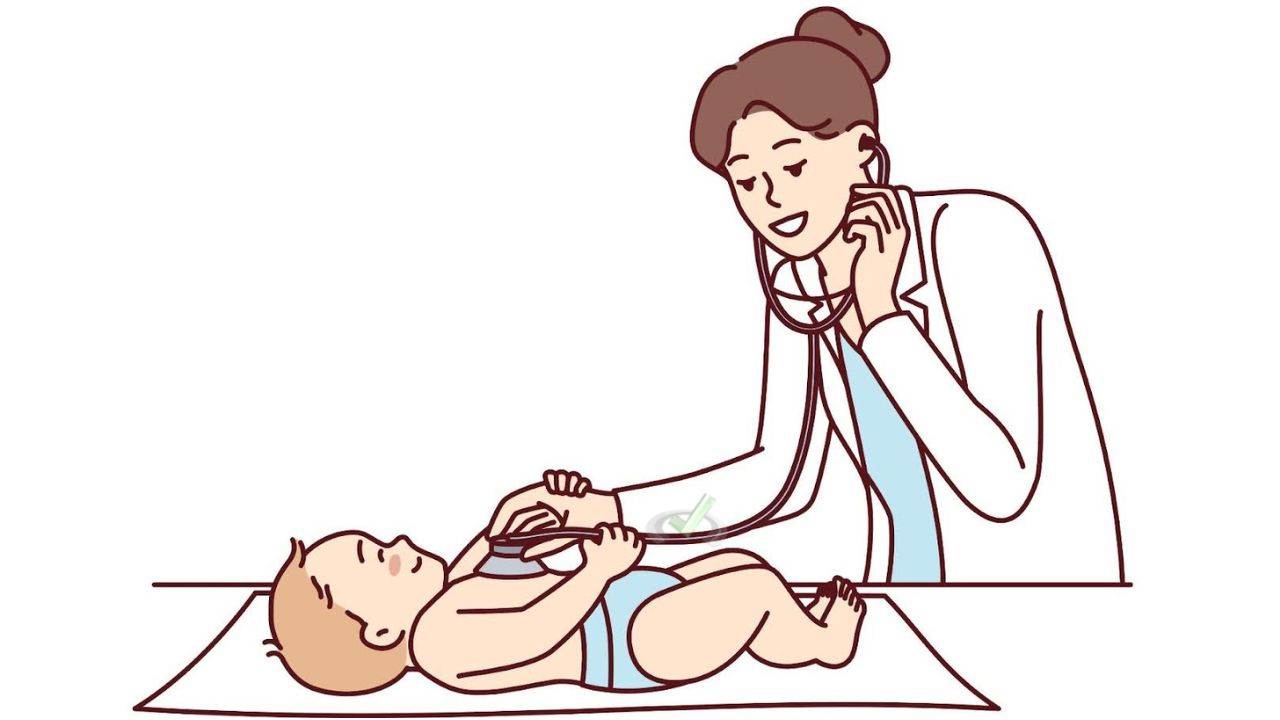The NCLEX. You’ve worked for years to get to this point, and now, in a matter of days, you’ll sit for the one exam that stands between you and that RN license. It’s normal to feel overwhelmed, but don’t worry—this 10 day NCLEX study plan breaks down the essentials, streamlines your focus, and prepares you to tackle the test confidently.
We’ll cover the critical topics and most effective strategies so you can hit each day’s goals, feel ready, and, most importantly, crush that NCLEX.
Day 1: Kickoff with a Solid Strategy
Time to kick things off. Day 1 is all about planning and getting everything you need in one place. Think of this as setting the stage so the rest of the study days can flow without a hitch.
Key Actions:
- Review the NCLEX-RN Test Plan. The NCLEX-RN exam isn’t just random topics. It has a structure, and the test plan splits content into four categories:
- Safe and Effective Care Environment
- Health Promotion and Maintenance
- Psychosocial Integrity
- Physiological Integrity
- Knowing these categories helps focus your study sessions so you don’t waste time on minor details. These main categories hold the high-yield content—this plan dives into each, day by day.
- Set Up a Study Space. You need a space that feels right. Somewhere comfortable, but not so comfy you end up napping. Keep your materials within reach—laptop, books, maybe a snack. This spot is now your “NCLEX HQ.”
- Gather Resources. You’ll need just a few essentials:
- A review book that suits you (stick to one to avoid overload)
- A question bank (QBank) like UWorld or Kaplan
- Flashcards, digital or paper—whatever clicks with you
- Outline Your Goals. Make a daily schedule with what topics you’ll tackle. This keeps you focused, aiming for around 4-6 hours per day with breaks.
Day 2: Pharmacology Fundamentals
Pharmacology shows up in a big way on the NCLEX. Day 2 focuses on high-yield drug classes and basic dosage calculations.
Key Actions:
- Master High-Yield Drug Classes. Start with the big categories you’re sure to see:
- Antibiotics like penicillins and cephalosporins
- Antihypertensives, including ACE inhibitors and beta-blockers
- Diuretics such as loop and thiazide types
- Psychotropics, focusing on SSRIs and antipsychotics
- Get clear on each class’s key effects and common side effects. For example, antibiotics can cause allergies, so pay attention to what signs to look for. Diuretics? Watch potassium levels.
- Learn Basic Dosage Calculations. Brush up on basic conversions and dose adjustments, especially IV flow rates. Practicing a few examples can make calculations second nature.
- Use Mnemonics for Drug Classes. Memorizing drugs gets easier with tricks. For instance, “SLUDGE” (Salivation, Lacrimation, Urination, Diarrhea, GI distress, Emesis) helps remember cholinergic effects.
- Practice Questions. At least 50 pharmacology questions should be included. To improve your comprehension, go over the justification for each response.
Day 3: Assignment Delegation and Setting Priorities
It's crucial to know what needs to be done first, who should do it and what can wait. Gaining an understanding of these concepts will enable you to think like an RN.
Key Actions:
- Recognize the ABC Rule: Breathing Circulation and Airway. Prioritization questions often come down to ABCs. When faced with multiple patients, those with airway or breathing issues usually go first. Keep it simple and remember: stability counts.
- Understand Delegation Limits. Not every task falls under your responsibility. Know what you can and cannot delegate to LPNs or CNAs. Generally, any assessment or high-level intervention stays with the RN.
- Practice “Who Comes First?” Questions. NCLEX loves to test you on this. Imagine you’re looking at a list of patients—think about who has the most urgent need. Unstable patients typically go before stable ones.
- Use Practice Questions. Go through 50-60 questions on prioritization, delegation, and assignment. Take your time answering these questions and pay attention to the logic behind each response.
Physiological Integrity: Medical-Surgical Nursing Fundamentals Day 4
Nursing care for registered nurses is based on medical-surgical nursing. Although it is a large area it is manageable when divided into key conditions.
Key Actions:
- Recognize the Important Systems and Conditions Focus on high-yield systems and some top conditions within each: and the test plan splits content into four categories:
- Cardiovascular (heart failure, hypertension)
- Respiratory (COPD, asthma)
- Gastrointestinal (ulcers, liver disease)
- Renal (acute kidney injury)
- Know what each condition looks like, key symptoms, and signs of deterioration. You’ll likely encounter these topics throughout the exam.
- Break Down Labs and Vital Signs. Labs are big on the NCLEX, so commit major values to memory, like potassium, sodium, and cardiac markers. Recognizing when labs indicate a problem is vital.
- Review Major Procedures. Understand nursing care for common procedures, like tracheostomy care, catheter insertion, and wound dressing. These procedures often pop up in scenario questions.
- Practice. Go through 75-100 Med-Surg questions. Rationales are gold here—review every one, even if you answered correctly.
Day 5: Health Promotion and Maintenance
The NCLEX tests more than just disease care; it dives into wellness, prevention, and patient teaching. Today’s study covers all those areas.
Key Actions:
- Know Screening Guidelines. The NCLEX loves to test on screenings. Review major guidelines, like cancer screenings, immunizations, and blood pressure checks. These guidelines vary by age, so pay attention to those age groups.
- Understand Developmental Stages. Cover developmental milestones across ages. Knowing what’s typical helps you spot abnormal findings. These questions often appear in “Is this normal?” scenarios.
- Educate on Preventive Measures. Get familiar with basic health promotion advice, like exercise recommendations, diet tips, and safe habits. Preventive care includes teaching about lifestyle choices that lower disease risk.
- Practice Questions. Do 50-60 questions on health promotion and maintenance. Many of these questions deal with patient education, so think about how you’d explain complex ideas in simple terms.
Day 6: Mental Health Nursing
Mental health care requires its own focus. Day 6 digs into psychiatric disorders, therapeutic communication, and specific meds.
Key Actions:
- Learn Key Psychiatric Disorders. Focus on depression, bipolar disorder, schizophrenia, and anxiety disorders. Know the basics of each disorder and understand the main interventions.
- Master Therapeutic Communication. Effective communication builds rapport and supports patients. Avoid clichés, stay empathetic, and understand what phrases help most.
- Understand Psychotropic Medications. Psych meds require close attention to side effects. Antipsychotics and antidepressants can have strong side effects, so know what patients should watch for.
- Practice Questions. Work through 50-60 mental health questions. Pay close attention to therapeutic communication. The NCLEX often tests phrases that either help or harm communication with patients.
Day 7: Pediatric Nursing Essentials
Pediatric nursing may feel daunting, but covering the essentials will help simplify it. Key topics include developmental stages, common illnesses, and safety.
Key Actions:
- Review Growth and Development Milestones. Understand key milestones for each age range—infants, toddlers, school-age, and teens. Each stage has unique growth expectations.
- Understand Common Pediatric Conditions. Focus on conditions like RSV, bronchiolitis, congenital heart defects, and childhood cancers. Know the main symptoms, treatments, and what nursing care looks like.
- Prioritize Safety. Safety matters with kids. Younger patients face risks adults don’t, so understand each age group’s safety needs, like keeping small objects away from toddlers.
- Practice Questions. Do 40-50 pediatric questions. Pediatric questions often focus on growth, development, and safety, so give these areas extra review.
Day 8: Women’s Health and Maternity Nursing
Maternity prenatal and neonatal care are all important topics covered in the NCLEX. Today covers a wide range of important subjects including postpartum care and labor.
Key Actions:
- Examine the Stages of Childbirth. From early labor to delivery be aware of the phases of labor. Knowing the symptoms of each stage is helpful when asking questions about patient care.
- Recognize the Main Complications. Study complications like preeclampsia, gestational diabetes, and postpartum hemorrhage. Recognize the key signs and learn what interventions help.
- Understand Newborn Care. Review APGAR scoring, reflexes, and basic newborn care. Knowing early newborn concerns will help with patient scenarios.
- Practice Questions. Complete 50 maternity-focused questions. Use explanations to help you understand maternity questions which frequently test symptoms and interventions in real-world situations.
Day 9: Practice With Simulations and Test-Taking Techniques
You are familiar with the content by now. Concentrate on applying that knowledge in test situations today including the more challenging NCLEX question types.
Key Actions:
- Examine the Most Typical NCLEX Question Types. Get familiar with select-all-that-apply (SATA), priority questions, and chart/exhibit questions. These question types are challenging, so practice helps.
- Use Practice Exams. Take a timed practice test to simulate the real thing. The test-taking experience matters, and this gets you ready for the NCLEX format and pace.
- Analyze Your Weak Areas. After the practice test, review missed questions. Look for areas to improve, and go over those topics again.
Day 10: Rest, Review, and Light Revision
The final day. Today is about resting, reviewing lightly, and recharging. You’ve done the work—now you just need a clear mind for tomorrow.
Key Actions:
- Review Flashcards and Key Concepts. Go through any flashcards and review your most challenging areas. This is a light, low-pressure review.
- Avoid Cramming. Stick to review, not cramming new content. Cramming only tires you out. Trust that you’re ready.
- Rest and Recharge. Good sleep and nutritious food make all the difference. Take a walk or do something relaxing.
Extra Tips for Your 10 Day NCLEX Study Plan
Here are a few bonus tips to keep you steady and confident during your NCLEX prep. From daily practice to staying healthy, these extra pointers boost your readiness and keep you focused.
- Consistent Practice. Practice questions daily to build your endurance.
- Stay Healthy. Good food, hydration, and movement keep your mind sharp.
- Confidence Matters. Trust in your work. You’re ready.
Conclusion: Self-Assured and Ready
This ten-day NCLEX study schedule emphasizes high-yield subjects, astute tactics and crucial practice. Follow the plan, maintain your concentration and continue to learn new things every day. With preparation and confidence you’ll be ready to ace that test. Good luck! You have this and are ready!




